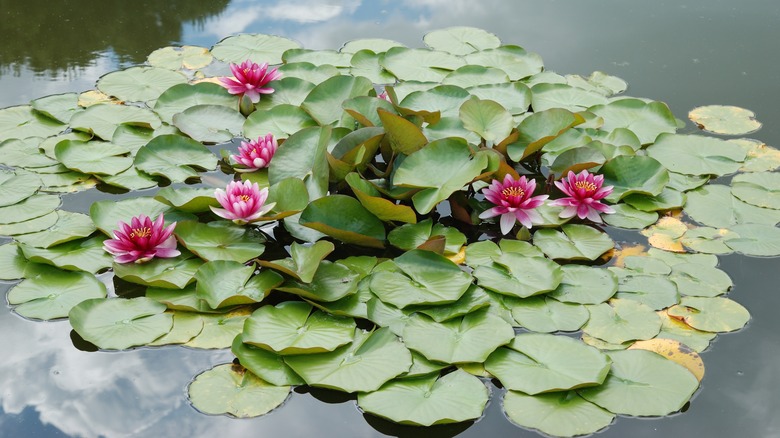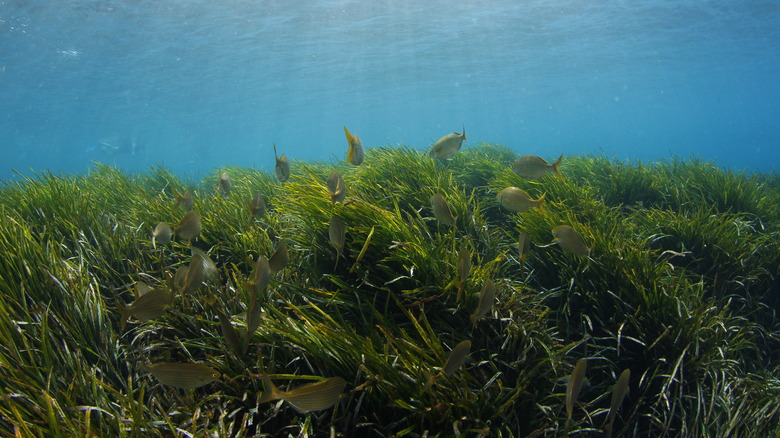Types Of Aquatic Plants
A vast variety of plants flourish in backyards, gardens, hillsides, and wooded areas. You see them every time you look out the window or step outside, but what you might not see regularly are plants that live in water. Aquatic plants are simply vegetation that thrive in freshwater and saltwater environments, where they act as food and protection for aquatic wildlife, filter water, and improve water oxygen levels, which indirectly raises pH levels by removing carbon dioxide. The first thing to know, though, is that there are a handful of distinct types, some of which are edible aquatic plants.
One of the most visible water plants on the surface of ponds, lakes, and other bodies of water are floating plants. They're unique because their roots don't grow in soil at all. Instead, they hang in the water, absorbing micronutrients and sunlight to survive. Since they aren't attached to the bottom of bodies of water, they float on the top, which is where they get their name. Some examples of floating plants include duckweed, salvinia, water hyacinth, and water lettuce.
Similar to floating varieties, emergent plants are aquatic species that you can see on the surface of water. The difference between these types, though, is that emergent plants are rooted in the soil of bodies of water. Their stems grow high enough that the buds and leaves emerge from the surface — hence the name — so you generally see them in water depths of just 4 to 5 feet near the edges of calm creeks, rivers, and ponds. The most obvious examples of emergent species are cattails and water lilies, which are also considered aquatic plants with special adaptive features. Others include horsetail, milkweed, swamp lily, and watercress.
Algae and submerged types of aquatic plants
Alongside the two categories above are two more types of aquatic plants. One is submerged aquatic vegetation, which are plants found in lakes and ponds, as well as other bodies of freshwater and saltwater, growing both near shorelines and in deep waters. Most of their mass thrives completely submerged under the water, which is where they get their name, although some of their flowers and leaves can stick above the water's surface. In fresh-and-salty mixed estuaries, submerged plants can create dense meadows that are ideal habitats with cover and food for crabs, fish, and other organisms, including species fished for commercial consumption. Some examples of plants that live in water totally submerged are coontail, seagrass, water celery, and various species of pondweed.
The fourth and final category of aquatic plant is algae. These species can range from one-celled microscopic organisms that float on the surface of water to multi-celled giant kelps, the latter of which are one of the major producers found in aquatic ecosystems and can grow up to 200 feet long. Algae can survive in all kinds of freshwater and saltwater environments, and are the basis of nourishment for nearly all aquatic wildlife. On top of producing oxygen, this vegetation is an important source of crude oil, industrial products, and pharmaceuticals for humans. However, some species of algae have harmful effects on humans and wildlife, such as causing memory loss after infecting seafood, because they contain toxins. A few examples of algae include blue-green algae, filamentous algae, plankton algae, and stonewort.

